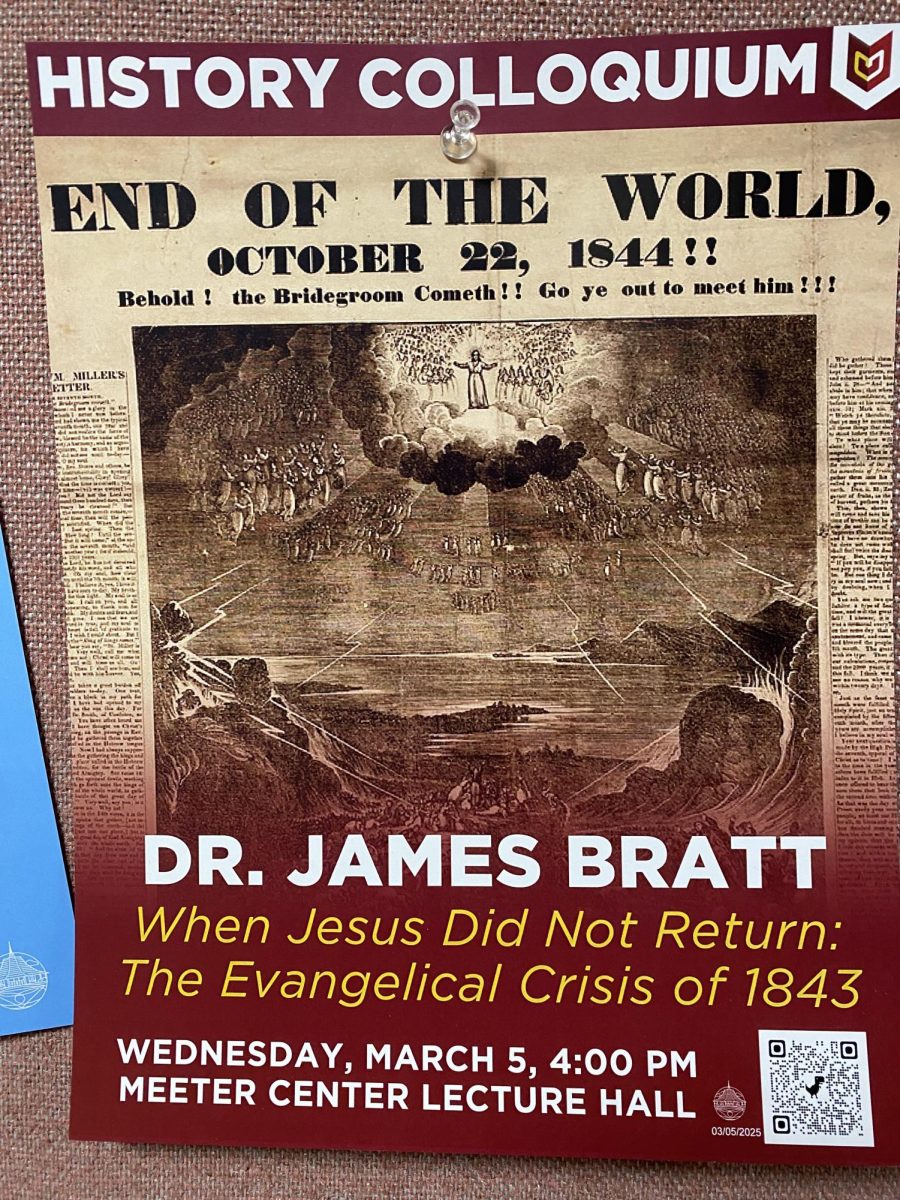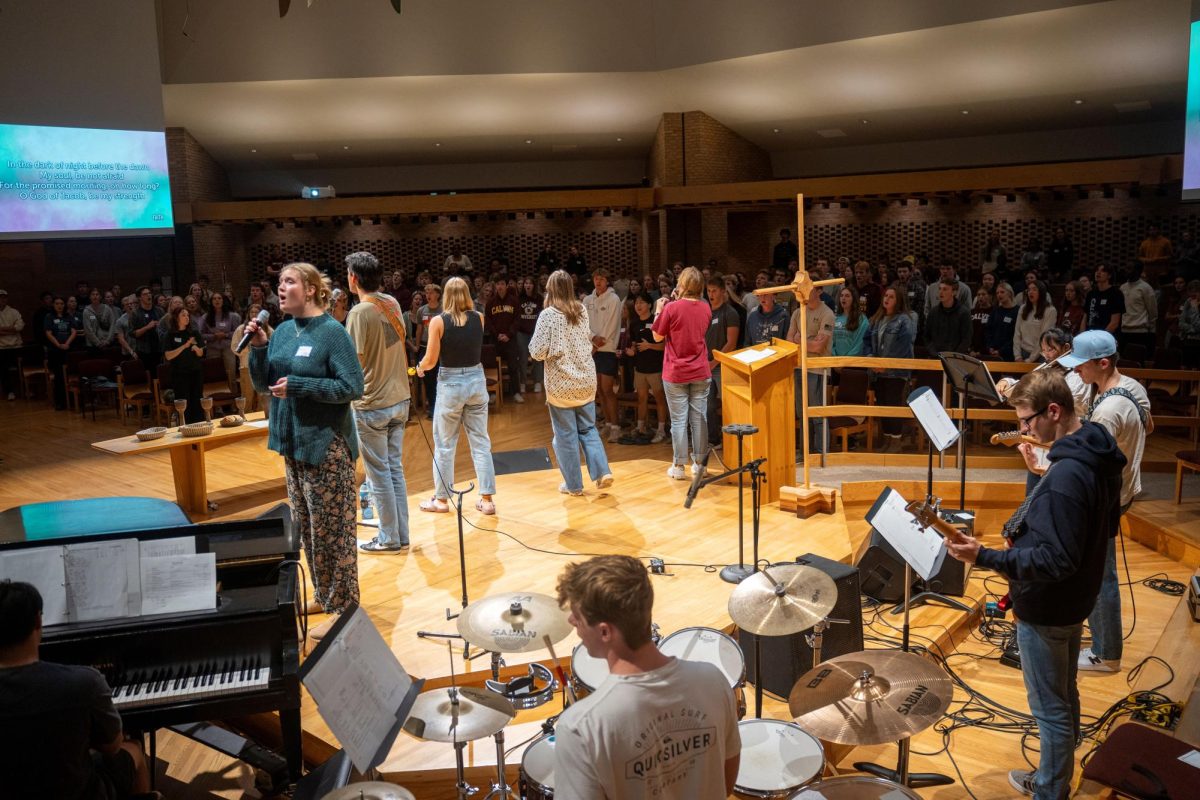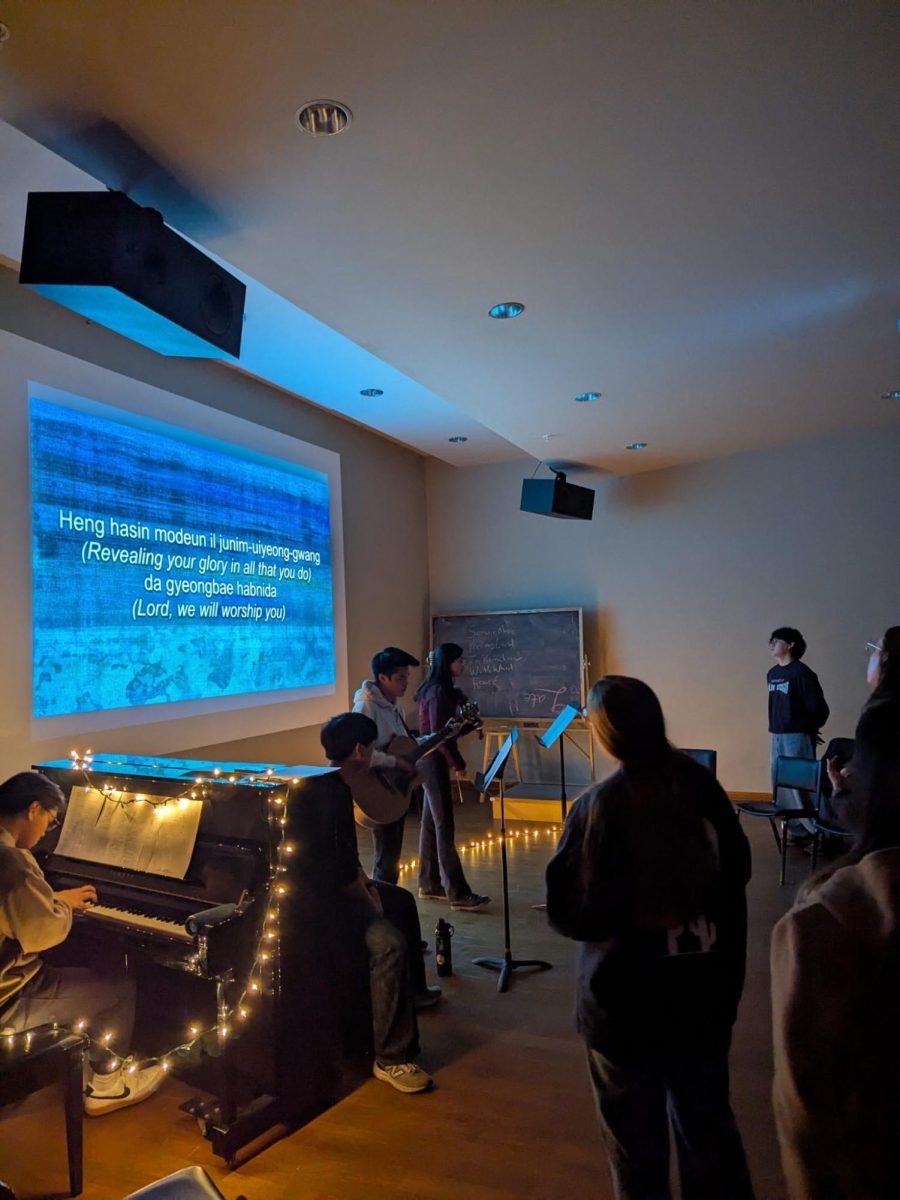Habits such as eating vegan, buying dye-free dish soap, wearing thick-patterned sweaters and drinking tea out of mason jars have been around for decades as generation after generation of young people tries to “live globally and act locally.” The Service-Learning Center’s (SLC) spring break trip to Three Rivers, Mich., brings all of these well-worn habits into a new light by setting the Christian faith in the forefront and asking, “How does a Christian live ‘locally’?”
The SLC partners with the organization *culture is not optional (*cino), founded by Rob and Kirstin Vander Giessen-Reitsma and located in Three Rivers. The mission of *cino is to “model and encourage creative communities, rooted in the love of Christ in Three Rivers and beyond.” Through farms, businesses, arts, journalism, nonprofits and monasteries, the trip engages students directly with “small town America” and shows how investing in a community is an integral part to bringing about God’s kingdom.
Sophomore Annaka Scheeres experienced this while on the trip.
“During our week in Three Rivers,” said Scheeres, “I realized that true faith is manifest only when we intentionally engage with and come to intimately know the place we live. Through conversations with monks, artists, local business owners, to name a few, the importance of stability continually surfaced.”
Establishing stability in Three Rivers has been a long process for *cino, who has been building intentional communities rooted in Christianity for more than a decade. Through the years, *cino maintains stability by its core values which include extending Christ’s “radical hospitality” to everyone, being a “faithful presence” in the community, resting in God’s presence through “sabbath rhythm” and spreading Christ’s love in a broken world with “ridiculous joy.”
Calvin students learn how to live out these core values in various ways throughout the week. For example, a major component of the trip is food — its production, preparation and consumption. Although enjoyable in its own right, food serves as a perfect example of a day-to-day experience that can be used for God’s glory by “delighting in the variety of flavors, colors and cultures of God’s good earth,” as Vander Giessen-Reistma says in her publication “Eat Well.”
Another theme of the trip is establishing a presence in a place — your neighborhood, community or city — and intentionally making a daily commitment to that place.
“When we lack an intimate knowledge of our physical place,” said Scheeres, “we will not become spiritually mature Christians. If we cannot commit to our place, we certainly cannot commit to our fellow community of believers because stability of heart, mind and spirit is impossible without stability of place.”
Connecting these two things, Christianity and community, the SLC supports *cino’s exhibition of how investment in a place brings about a fuller Christian life.
“God created human beings for the joyful, complex, creative work of making something of this world, ultimately toward shalom: flourishing for all of creation. *cino aims to highlight and educate for this work of faithful cultivation in our households and neighborhoods.”







